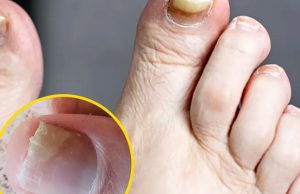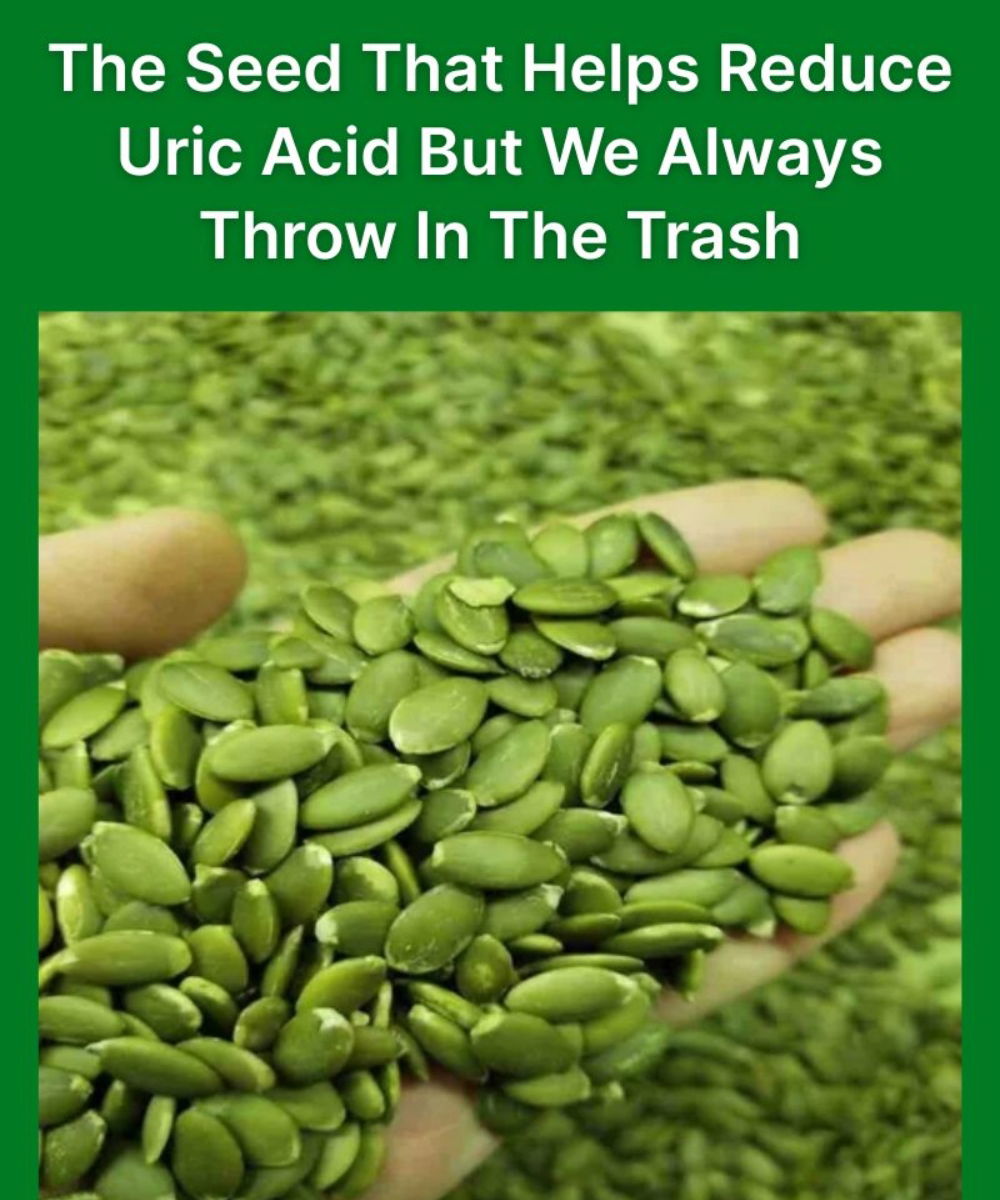
Crunchy, packed with nutrients, and often underappreciated, pumpkin seeds deliver far more than satisfying texture — they offer real, science-backed health benefits.
What Makes Pumpkin Seeds So Nutritious?
Also called pepitas, pumpkin seeds rank among the most nutrient-rich natural superfoods. They contain a wealth of micronutrients and beneficial plant compounds, unlike many processed snack foods loaded with sodium and additives.
Nutritional Highlights:
Complete proteins: They supply all nine essential amino acids.
Healthy fats: Rich in polyunsaturated and omega-6 fatty acids.
Zinc and magnesium: Vital for immune defense, restful sleep, and nerve-muscle function.
Antioxidants: Including vitamin E, carotenoids, and tocopherols.
Iron, phosphorus, potassium, copper: Crucial for maintaining energy production at the cellular level.
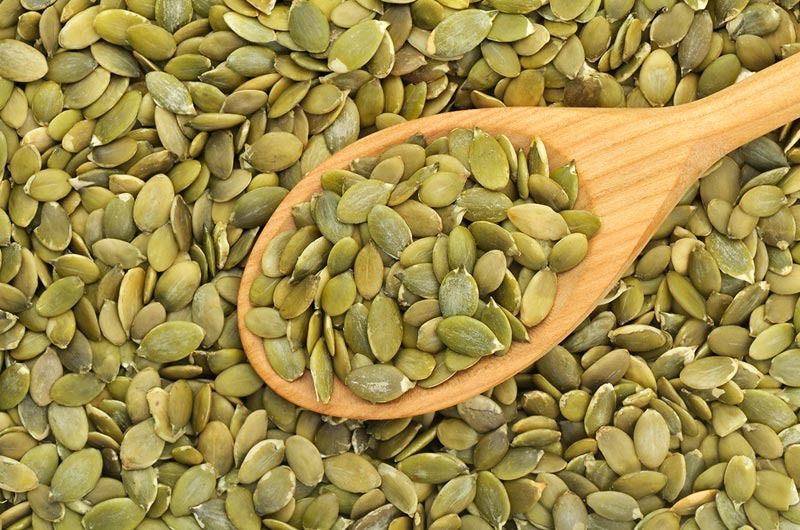
Health Advantages of Pumpkin Seeds
Heart Health
The combination of unsaturated fats, antioxidants, and plant sterols in pumpkin seeds can help lower LDL cholesterol and improve the flexibility of arteries.
Harvard Health Publishing notes that regular consumption may reduce your risk of cardiovascular disease.
Blood Sugar and Metabolic Benefits
Thanks to their magnesium and fiber, pumpkin seeds can help stabilize blood sugar, making them a smart choice for people managing prediabetes or type 2 diabetes.
Improved Sleep and Emotional Balance
Pumpkin seeds are naturally rich in tryptophan, an amino acid that contributes to the production of serotonin and melatonin.
Eating them in the evening may encourage more restful sleep and a steadier mood.
Prostate Health
Research suggests that pumpkin seed oil may help ease symptoms of benign prostatic hyperplasia (BPH) through its anti-inflammatory and phytosterol properties.
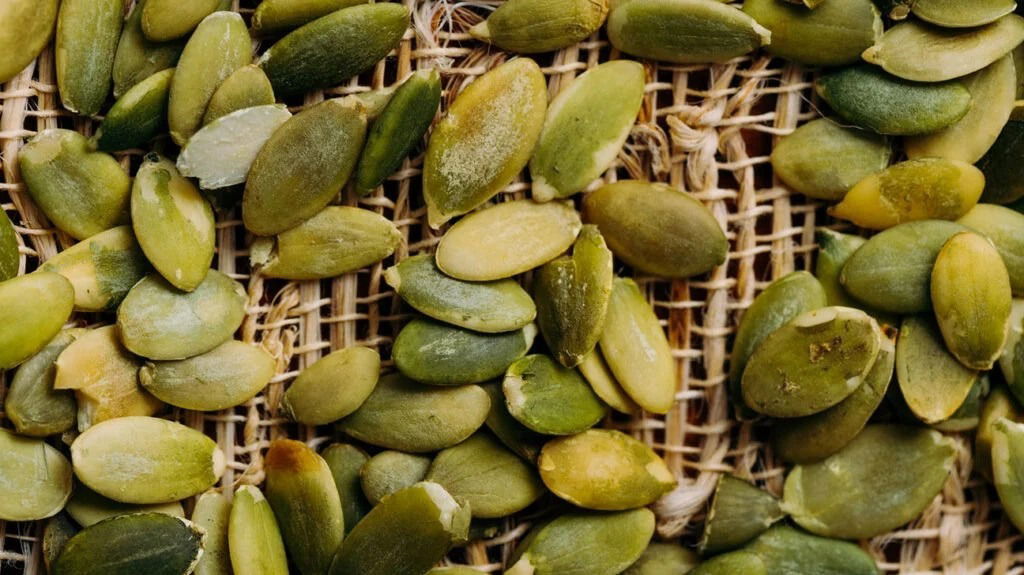
How Pumpkin Seeds Bolster Immunity and Hormonal Health
Most people don’t realize how interconnected their immune and hormonal systems are, and pumpkin seeds nourish both.
Immune Support
Zinc plays a critical role in creating and activating T-cells, which are essential for a healthy immune response.
As the Cleveland Clinic points out, zinc can even help slow age-related decline in immunity.
Hormonal Balance
A blend of magnesium, zinc, and antioxidants in pumpkin seeds helps regulate stress and sleep hormones like cortisol and melatonin.
They may also support hormonal stability during menstruation or menopause, while in men, they encourage reproductive and prostate health.
Thanks to these benefits, pumpkin seeds are a smart, natural addition for anyone experiencing hormone-related challenges, menstrual discomfort, or chronic stress.
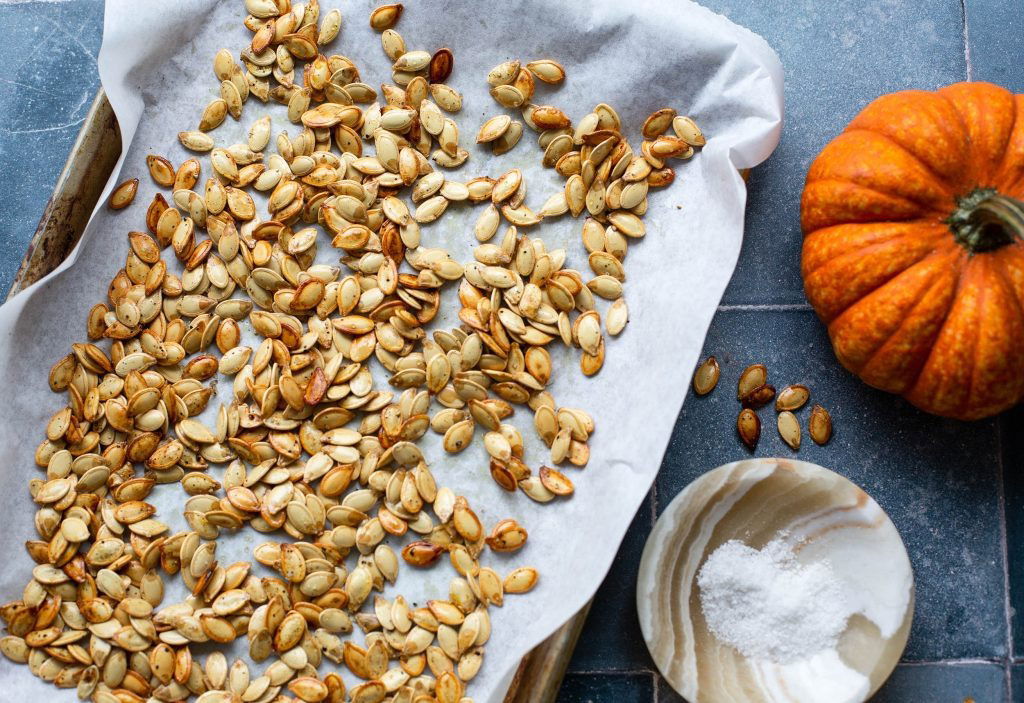
Easy Ways to Incorporate Pumpkin Seeds
One of their best qualities is how adaptable they are. You can enjoy pumpkin seeds raw, roasted, ground, or as an ingredient in countless recipes.
Simple ways to include them in meals:
- As a snack: Roasted and unsalted.
- In salads or soups: Adds texture and nutrients.
- In smoothies or juices: Whole or ground, for a protein boost.
- In baking: Fold into bread dough, cookies, or energy bars.
- With yogurt or oatmeal: Combines well with fruits, seeds, and a drizzle of honey.
To keep your meals interesting, change up how you use them and try different recipes and mealtimes.
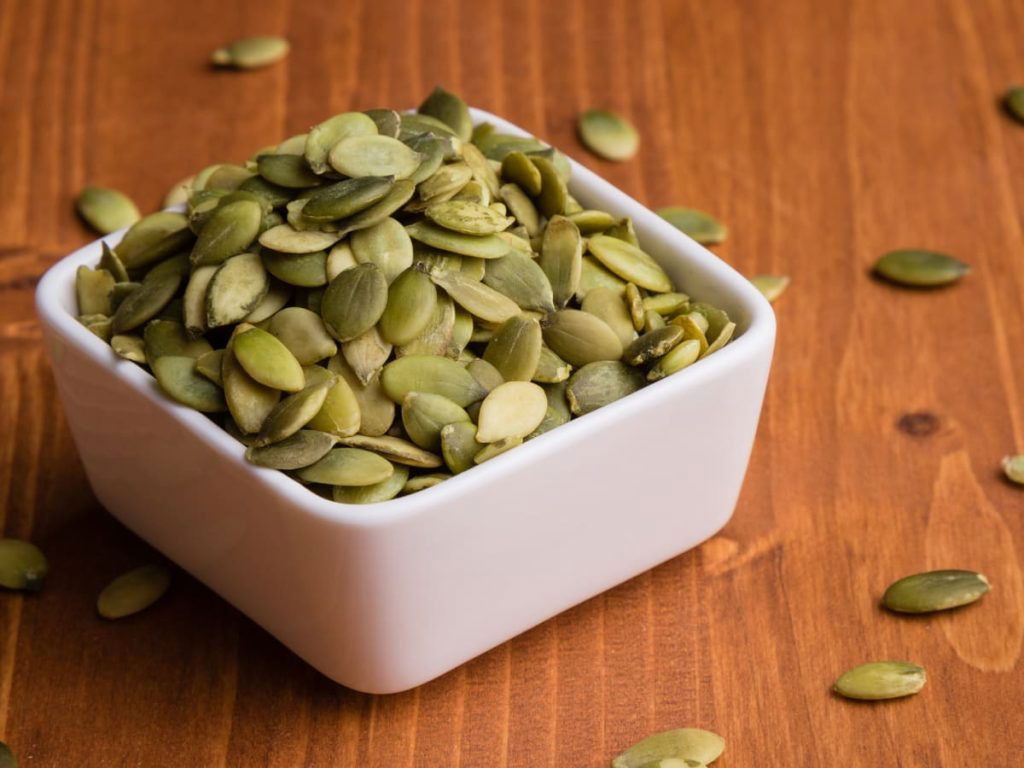
Precautions and Recommended Intake
While pumpkin seeds are generally safe, moderation is still key.
Things to keep in mind:
High calorie content: Overeating could conflict with a calorie-restricted diet.
Mild laxative effect: Eating more than 50 grams per day, especially without other foods, might cause digestive upset.
Allergy risk: Although rare, allergies can happen.
Phytates: In large raw amounts, they may reduce mineral absorption.
Adding them to your routine is a simple, practical way to support your well-being. However, if you have a medical condition or take supplements, consult a doctor or nutritionist before making big changes, as you would with any food that has therapeutic benefits.









